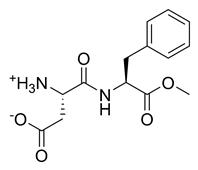Many of us have heard or read about artificial sweeteners affecting the thyroid. This is a stunning example reported at the very recent American Association of Clinical Endocrinologists (AACE) 22nd Annual Scientific & Clinical Congress – Creating an Oasis of Quality of Care in the Desert, May 1-5, 2013, in Phoenix, AZ.
Abstract #1083
AUTOIMMUNE THYROIDITIS WITH HYPOTHYROIDISM INDUCED BY SUGAR SUBSTITUTES
Issac Sachmechi, MD, FACP, FACE, Sarah Hussain, MD
Mount Sinai Services
Objective
Increase in consumption of sugar-substitutes is being observed over the last few decades. We are presenting a case of Hashimoto’s hypothyroidism induced by high intake of beverages containing sugar-substitutes, which resolved completely with the elimination of these products from diet.
Case Presentation
A 52 year old female with a history of consumption of high dose of artificial sweeteners was diagnosed with Hashimoto’s hypothyroidism in 2008. On presentation her TSH (Thyroid Stimulating Hormone) was 12.2 mIU/L (normal: 0.4 - 4.5), Free-T4 0.5 ng/dl (normal: 0.58 - 1.64) and Anti TPO Ab (Anti-Thyroid Peroxidase Antibody) 196 IU/ml (normal: <35). Treatment with Levothyroxin 0.75 mg/day normalized her TSH, which remained between 1.23 mIU/L and 2.16 mIU/L during the following 3 years. She was also ruled-out for other autoimmune disorder. Due to weight gain the patient reduced, and eventually stopped taking the sweeteners in February 2012. This was followed by unanticipated drop in her TSH to 0.005mIU/L. The TSH remained suppressed despite reduction in Levothyroxin dose to 0.5 mg and complete discontinuation of Levothyroxin was achieved with fully normal TSH and Anti-TPO antibody <20 IU/ml (normal: <35) TSI (thyroid stimulating immunoglobulin) 113% (normal less than 140%) TBII (Thyrotropin Binding Inhibiting Immunoglobulins) <6.0% (normal: <16%). She remained clinically euthyroid without any treatment during subsequent follow-up visits.
Discussion
The sugar-substitutes are attributed with large number of health related side effects in animal studies, ranging from obesity to various malignancies. Nonetheless, not much is known about the human implications of these findings considering the phenomenon of excessive consumption of sugar-substitutes being relatively new. In our case it may either be a rare idiosyncratic or more generalized reaction to high intake of artificial sweeteners.
Formaldehyde, a metabolite of aspartame is reported to be associated with Type IV delayed hypersensitivity. Large control studies should be done to confirm this association.
Conclusion
This case emphasizes that in all patients diagnosed with Hashimoto’s Thyroiditis, intake of sugar-substitutes should be inquired. If found positive, discontinuation of intake and close follow-up of thyroid function test should be done
am.aace.com/sites/all//file...
Rod
Image is diagram of the aspartame molecule

